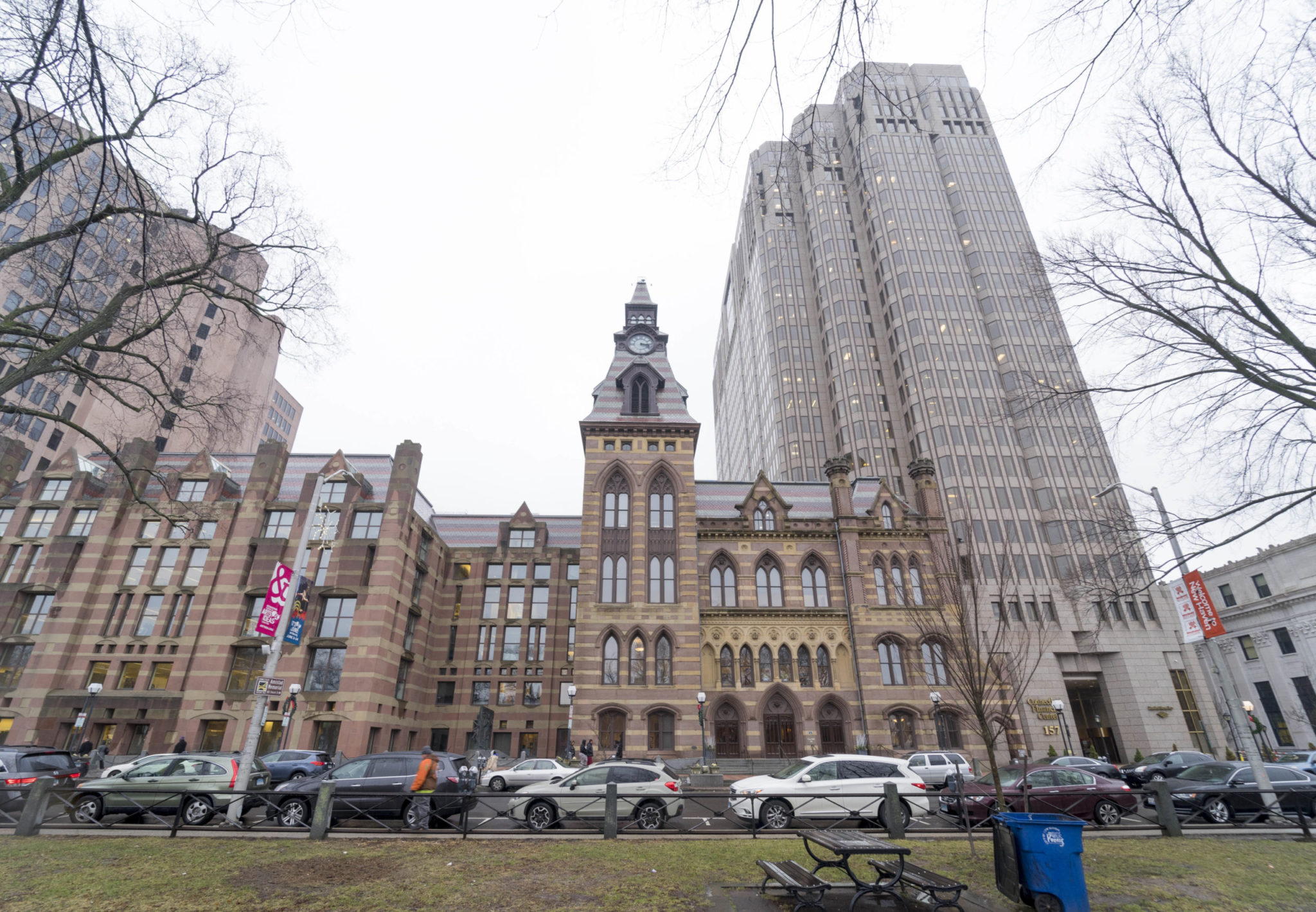
Nat Kerman
A day after the University began soliciting donations to support healthcare and assist New Haven businesses, Mayor Justin Elicker criticized what he sees as his alma mater’s lack of cooperation in the time of a pandemic.
At a press conference Friday afternoon, Elicker said the University declined the city’s request late last week to open Yale dorms to public safety officers in the event that they are exposed to COVID-19. When the city turned to the University of New Haven, UNH President Steve Kaplan agreed within five minutes to house 100 to 150 officers and has since “rolled out the red carpet” for the city, Elicker said. According to University spokesperson Karen Peart, Yale had to decline the request due to feasibility issues, as dorms still contain student belongings. The University will inform the mayor as soon as it is able to clear space, Peart said.
On Thursday, University President Peter Salovey launched the Yale Community for New Haven fund and donated $1 million to a $5 million goal. The University has partnered with the United Way of Greater New Haven and the Community Foundation for Greater New Haven and will match donations from its students, faculty and staff. Peart told the News that the donation fund is unrelated to the University’s inability to “provide use of the residential colleges at this time.”
While Elicker declined to comment on the fund on Thursday, he said on Friday that it was not born of conversations between the city and University and that Yale’s financial contribution does not meet New Haven’s needs.
“If your house was burning down and you asked your neighbor if your kids could stay at their house and your neighbor said, ‘No, but here’s a check so you can stay at the Econolodge across town,’ what does that say about your neighbor?” Elicker asked on Friday. “It’s at these times of crisis that people are exposed for their true selves. Everyone needs to do their part at this very difficult time — and writing a check doesn’t exempt you from that.”
During the press conference, Elicker noted that he is working with other local partners to expand housing availability for public safety officers and is engaging in “very productive” conversations with other universities about further partnerships. Among them, he said, are potential plans to house the city’s homeless population — a request that he has not made of Yale.
Elicker said that Salovey reached out to the mayor around two weeks ago to offer “any support Yale could give” to the Elm City amid the COVID-19 crisis. At the time, Elicker did not have an ask. That changed late last week, when he called the University to request beds for up to 150 public safety officers that fall into two categories. The first is healthy, asymptomatic officers who have family members with COVID-19 exposure and do not want to return home and thereby risk their abilities to continue to serve; the second, officers who may have been exposed to the virus and require self-isolation apart from their families.
Yale declined this request, so Elicker turned to UNH and is set to finalize arrangements with UNH President Steve Kaplan in the coming days. The demand for these dorms is low right now — currently, two firefighters have been exposed to COVID-19 and tested negative, and several others are awaiting results. But with a rapidly escalating public health crisis on its hands, the city is preparing for a deluge of cases. In the past day, the number of positive COVID-19 tests in New Haven has jumped from 29 to 52.
In a Thursday email requesting donations, Salovey touted the Yale Community for New Haven fund as a direct response to the Elm City’s most urgent needs. Any money raised will support “the well-being of children and families, homelessness, and food insecurity” — issues that Elicker “has clearly articulated [are] as among his most important concerns,” Salovey wrote.
But according to Elicker, the fund is not set to fill the city’s requests.
“Frankly, that’s not what we asked for,” he said on Friday.
He noted that he has not had recent conversations with the University about Yale’s financial role in the COVID-19 crisis.
In an email to the News, Peart emphasized that the University has supported New Haven in a variety of ways throughout the pandemic, including suspending March and April base rent payments for over 100 local businesses located in university-owned buildings and promoting gift card purchases from Elm City establishments. Yale has also pledged to maintain the salaries of 6,000 New Haven residents employed by the University and to continue its long-standing tradition of donating food to Downtown Evening Soup Kitchen and Haven’s Harvest, among other food provision measures.
Additionally, Yale’s School of Public Health, School of Nursing and School of Medicine are engaging in research and volunteer medical services, Peart wrote. But as for Elicker’s call for Yale housing, the process of removing student belongings will take weeks.
“We all wish the situation on our campus were different, but because our students had already gone home for spring recess when we implemented our social distancing restrictions, the rooms aren’t ready for others to live in them,” Peart wrote.
On Sunday, Yale informed 70 students living on Old Campus that their belongings would be moved into storage to make way for graduate and professional school students whose prior living arrangements made social distancing impossible.
Mackenzie Hawkins | mackenzie.hawkins@yale.edu







